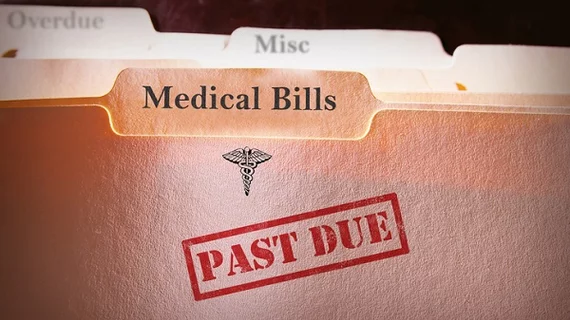American College of Radiology, RBMA express growing alarm over pause in surprise-bill processing
Radiology societies are expressing growing alarm over the extended closure of the process specialists use to settle out-of-network payment disagreements with insurers.
The federal government shut down independent dispute resolution, or IDR, in early August after a judge struck down the 600% increase to the fee physicians must pay to initiate mediation. IDR has remained largely inactive since then, with requests from radiologists and other physicians continuing to pile up in the eight-week aftermath.
Five physician groups, including the Radiology Business Management Association and American College of Radiology, on Monday pressed the feds for a “immediate and full” IDR relaunch.
“The already substantial backlog of arbitration cases grows worse each passing day,” ACR, RBMA, the American Society for Anesthesiology, the Emergency Department Practice Management Association and the American College of Emergency Physicians said in a joint statement issued Oct. 2. “Clinicians face considerable cash-flow challenges that are being compounded by their lack of recourse in resolving payment disputes.”
ACR et al. said they appreciate the Centers for Medicare & Medicaid Services in September instructed arbitrators to begin processing claims submitted prior to Aug. 3. However, the announcement applied only to singular, one-off disputes and not those that have been batched together for efficiency’s sake. This is only “further straining the IDR system,” the medical groups contend.
Radiologists, anesthesiologists and emergency physicians also want the federal government to reform “overly restrictive” rules applying to the batching together of similar claims.
“Without a change to these rules, the IDR system will remain overwhelmed by single, inefficient claims that add administrative burdens to the healthcare system as a whole and detract resources from patient care,” ACR, the RBMA and others said Monday. “These kinds of barriers and delays in dispute resolution undermine the well-crafted and interconnected policies of the No Surprises Act that serve to protect patients from surprise medical bills. The law cannot function as intended while its most crucial functions remain inaccessible."
The medical groups labeled the weeks-long stoppage as “unnecessary,” while noting that the Texas judge’s ruling that proceeded the pause “made clear that dispute resolution could continue uninterrupted.”
In related No Surprises Act news, the federal government also recently proposed raising the IDR fee from $50 (which it fell back to following the ruling) up to $150. ACR also submitted testimony to the U.S. House Committee on Ways & Means regarding ongoing issues with the No Surprises Act.

